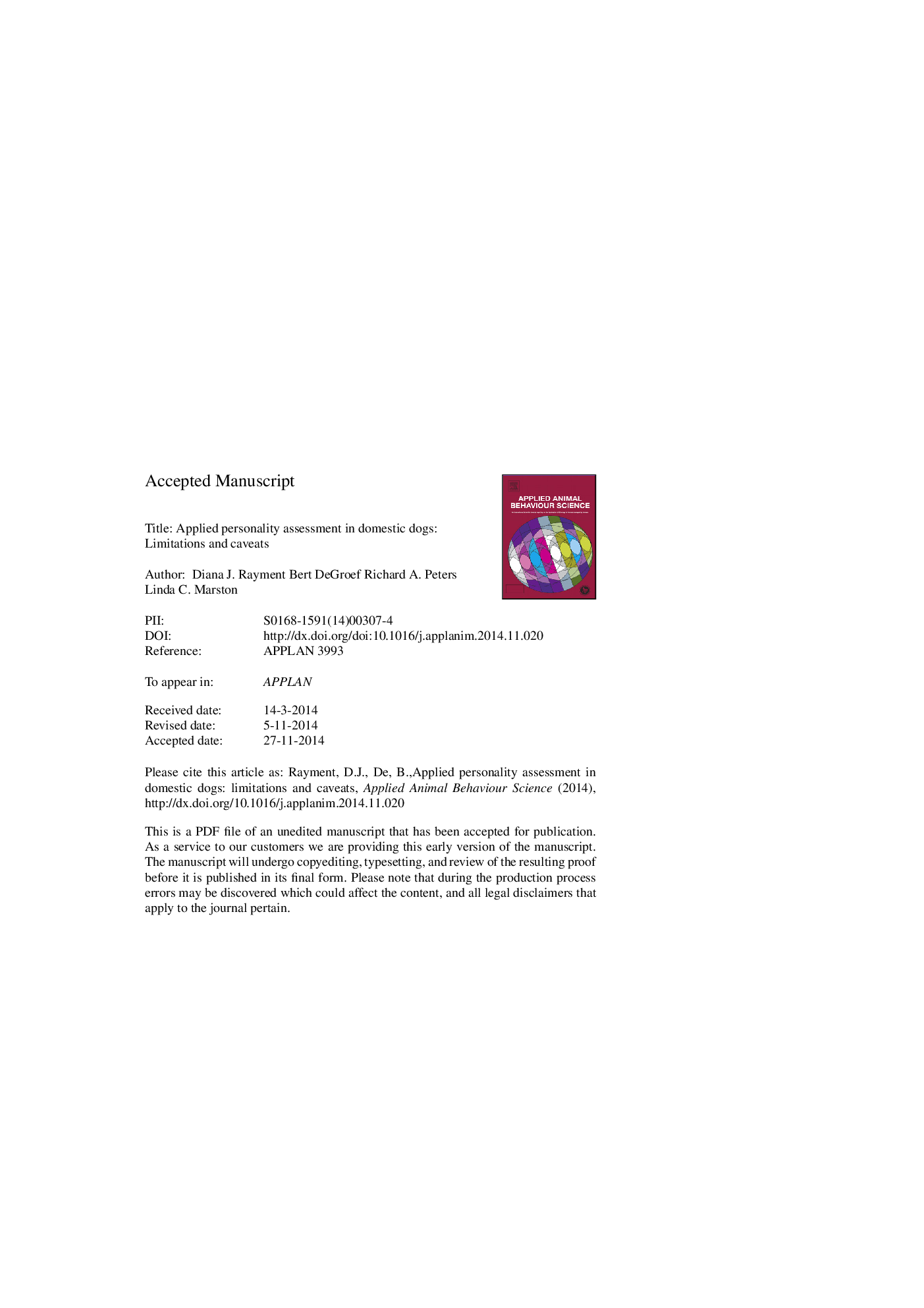| Article ID | Journal | Published Year | Pages | File Type |
|---|---|---|---|---|
| 6379608 | Applied Animal Behaviour Science | 2015 | 62 Pages |
Abstract
Modern behavioural tests for domestic dogs are commonly employed across a variety of fields, including the assessment of companion, assistance, working and sporting dogs. While there is increasing scientific attention on the development and evaluation of behavioural tests used to assess personality, a lack of robust assessment of the validity and reliability of many test protocols currently in use 'on the ground' has led to the repeated questioning of their use by both the scientific community and the public. This is particularly prevalent within the welfare sector, where consequences for dogs that are identified as behaviourally unsuitable for rehoming are dire. Despite the large body of work dedicated to canine personality and behavioural test development, relatively few reported protocols have been demonstrated to accurately and reliably predict behavioural traits in dogs, according to accepted validation and reliability assessment protocols used by psychologists. Inconsistencies in the terminology used to describe behaviour, tests and canine personality are common within the literature pertaining to applied personality testing of dogs, making discussion of the usefulness of such tests within the applied environment difficult. Furthermore, highly relevant information gained from the fields of psychology and ethology, such as the limitations of behaviour-only scoring systems, the need to assess both temporal and contextual stability during personality testing, and the effects of arousal, impulsivity and affective state on behaviour, is seemingly overlooked by some test developers, resulting in array of test protocols that suffer from similar, predictable design limitations. This review discusses the most prominent considerations and limitations relevant to the assessment of personality through behavioural tests in domestic dogs, and suggests possible mechanisms through which these limitations may be investigated and addressed. In particular, it is recommended that the results of shelter-based behavioural test batteries are interpreted within the limitations of the context in which they are performed, and test developers consider other methods with which personality may be assessed within the shelter environment.
Keywords
Related Topics
Life Sciences
Agricultural and Biological Sciences
Animal Science and Zoology
Authors
Diana J. Rayment, Bert De Groef, Richard A. Peters, Linda C. Marston,
